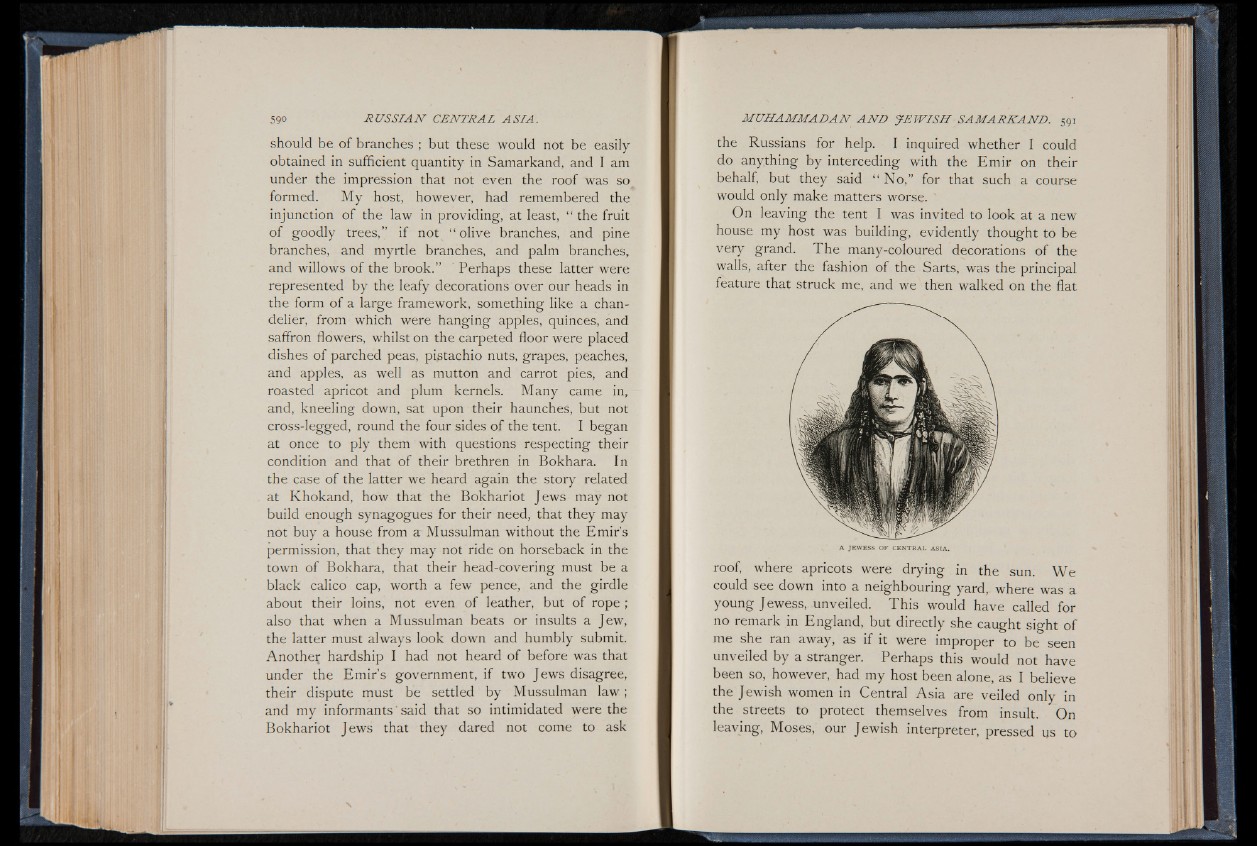
should be of branches ; but these would not be easily
obtained in sufficient quantity in Samarkand, and I am
under the impression that not even the roof was so
formed. My host, however, had remembered the
injunction of the law in providing, at least, “ the fruit
of goodly trees,” if not “ olive branches, and pine
branches, and myrtle branches, and palm branches,
and willows of the brook.” Perhaps these latter were
represented by the leafy decorations over our heads in
the form of a large framework, something like a chandelier,
from which were hanging apples, quinces, and
saffron flowers, whilst on the carpeted floor were placed
dishes of parched peas, pistachio nuts, grapes, peaches,
and apples, as well as mutton and carrot pies, and
roasted apricot and plum kernels. Many came in,
and, kneeling down, sat upon their haunches, but not
cross-legged, round the four sides of the tent. I began
at once to ply them with questions respecting their
condition and that of their brethren in Bokhara. In
the case of the latter we heard again the story related
at Khokand, how that the Bokhariot Jews may not
build enough synagogues for their need, that they may
not buy a house from a: Mussulman without the Emir’s
permission, that they may not ride on horseback in the
town of Bokhara, that their head-covering must be a
black calico cap, worth a few pence, and the girdle
about their loins, not even of leather, but of rope ;
also that when a Mussulman beats or insults a Jew,
the latter must always look down and humbly submit.
Another hardship I had not heard of before was that
under the Emir’s government, if two Jews disagree,
their dispute must be settled by Mussulman law ;
and my informants' said that so intimidated were the
Bokhariot Jews that they dared not come to ask
the Russians for help. I inquired whether I could
do anything by interceding with the Emir on their
behalf, but they said “ No,” for that such a course
would only make matters worse. '
On leaving the tent I was invited to look at a new
house my host was building, evidently thought to be
very grand. The many-coloured decorations of the
walls, after the fashion of the Sarts, was the principal
feature that struck me, and we then walked on the flat
A JEWESS OF CENTRAL ASIA.
roof, where apricots were drying in the sun. W e
could see down into a neighbouring yard, where was a
young Jewess,. unveiled. This would have called for
no remark in England, but directly she caught sight of
me she ran away, as if it were improper to be seen
unveiled by a stranger. Perhaps this would not have
been so, however, had my host been alone, as I believe
the Jewish women in Central Asia are veiled only in
the streets to protect themselves from insult. On
leaving, Moses, our Jewish interpreter, pressed us to
S S S iiiS i